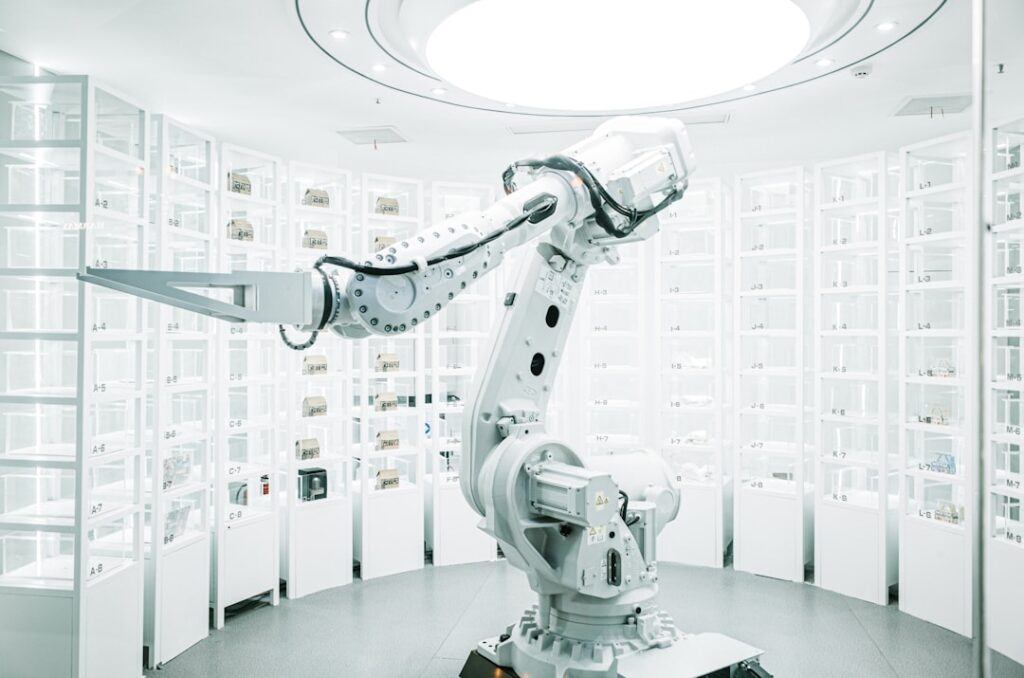Artificial Intelligence (AI) has become a buzzword in recent years, with its applications spanning across various industries. From healthcare to finance, AI has revolutionized the way we live and work. One area where AI is making significant strides is in lottery predictions. Traditionally, predicting lottery numbers has been a game of chance, but with the advent of AI, the game is changing.
Lottery predictions involve using statistical analysis and mathematical algorithms to determine the likelihood of certain numbers being drawn in a lottery game. AI takes this concept a step further by using machine learning algorithms to analyze vast amounts of data and make predictions based on patterns and trends. This has the potential to greatly increase the accuracy of lottery predictions and give players a better chance of winning.
Understanding the Lottery System
To understand how AI is changing the lottery game, it is important to first understand how the lottery system works. Lottery numbers are generated using a random number generator (RNG), which ensures that each number has an equal chance of being drawn. The numbers are then drawn using a mechanical or electronic drawing machine.
There are different types of lottery games, each with its own set of rules. Some games require players to choose a set of numbers from a predetermined range, while others involve matching numbers in a specific order. The odds of winning vary depending on the game and the number of tickets sold.
How AI is Changing the Lottery Game
AI is revolutionizing the way lottery predictions are made. Instead of relying on luck or intuition, AI uses complex algorithms and machine learning techniques to analyze historical data and make predictions based on patterns and trends. This has the potential to greatly increase the accuracy of lottery predictions and give players a better chance of winning.
There are several companies and organizations that are using AI for lottery predictions. One example is Lottoland, a leading online lottery platform that uses AI algorithms to analyze historical data and make predictions for upcoming draws. Another example is ZEAL Network, a company that uses AI to analyze data from multiple lotteries and make predictions based on patterns and trends.
The Science Behind AI Lottery Predictions
The science behind AI lottery predictions involves the use of complex algorithms and models to analyze historical data and make predictions based on patterns and trends. These algorithms use statistical analysis and machine learning techniques to identify patterns in the data and make predictions based on those patterns.
The data used in AI lottery predictions comes from a variety of sources, including historical lottery results, player demographics, and other relevant data. The variables used in these models can vary depending on the specific algorithm being used, but typically include factors such as the frequency of each number being drawn, the distribution of numbers across different games, and the likelihood of certain numbers being drawn together.
Advantages of Using AI for Lottery Predictions
There are several advantages to using AI for lottery predictions. One of the main advantages is increased accuracy. AI algorithms are able to analyze vast amounts of data and identify patterns and trends that may not be apparent to human analysts. This can greatly increase the accuracy of lottery predictions and give players a better chance of winning.
Another advantage of using AI for lottery predictions is increased efficiency. AI algorithms are able to process large amounts of data quickly and make predictions in real-time. This allows players to get up-to-date predictions for upcoming draws and make informed decisions about which numbers to play.
There have been several successful examples of AI lottery predictions. For example, in 2018, an AI algorithm developed by researchers at Stanford University correctly predicted 4 out of 5 winning numbers in a California lottery game. This demonstrates the potential of AI to make accurate predictions and improve the odds of winning.
Limitations of AI in Predicting Lottery Numbers

While AI has the potential to greatly improve the accuracy of lottery predictions, there are also limitations to its effectiveness. One of the main limitations is the unpredictability of human behavior. Lottery numbers are drawn randomly, and human behavior can be difficult to predict. Factors such as player preferences, superstitions, and other external factors can influence the outcome of a lottery draw and make it difficult for AI algorithms to accurately predict the winning numbers.
Another limitation is the quality and quantity of data available. AI algorithms rely on historical data to make predictions, and if the data is incomplete or inaccurate, it can affect the accuracy of the predictions. Additionally, if there is not enough data available, it can be difficult for AI algorithms to identify patterns and trends.
Accuracy of AI Lottery Predictions
The accuracy of AI lottery predictions can vary depending on several factors. One factor is the quality and quantity of data used in the predictions. If the data is accurate and comprehensive, it can greatly improve the accuracy of the predictions. However, if the data is incomplete or inaccurate, it can affect the accuracy of the predictions.
Another factor that can affect the accuracy of AI lottery predictions is the complexity of the algorithm used. Some algorithms are more sophisticated than others and are able to analyze data more effectively. The complexity of the algorithm can also affect the processing time and efficiency of the predictions.
Factors that Affect AI Lottery Predictions
There are several factors that can affect AI lottery predictions. One factor is the quality and quantity of data used in the predictions. If the data is accurate and comprehensive, it can greatly improve the accuracy of the predictions. However, if the data is incomplete or inaccurate, it can affect the accuracy of the predictions.
Another factor that can affect AI lottery predictions is the complexity of the algorithm used. Some algorithms are more sophisticated than others and are able to analyze data more effectively. The complexity of the algorithm can also affect the processing time and efficiency of the predictions.
The randomness of the lottery system is another factor that can affect AI lottery predictions. Lottery numbers are drawn randomly, and human behavior can be difficult to predict. Factors such as player preferences, superstitions, and other external factors can influence the outcome of a lottery draw and make it difficult for AI algorithms to accurately predict the winning numbers.
Legal and Ethical Implications of AI Lottery Predictions
The use of AI for lottery predictions raises several legal and ethical implications. One of the main concerns is the potential for fraud. If AI algorithms are able to accurately predict lottery numbers, there is a risk that individuals or organizations could use this information to manipulate the outcome of a lottery draw. This could undermine the integrity of the lottery system and lead to unfair outcomes.
Another concern is the responsibility of companies and organizations using AI for lottery predictions. If AI algorithms are used to make predictions, there is a responsibility to ensure that the algorithms are accurate and reliable. This includes regularly updating the algorithms and validating their accuracy against historical data.
The Future of AI Lottery Predictions
The future of AI lottery predictions looks promising. As technology continues to advance, we can expect to see more sophisticated algorithms and models being developed for lottery predictions. Machine learning and deep learning algorithms have the potential to greatly improve the accuracy of predictions by analyzing vast amounts of data and identifying patterns and trends that may not be apparent to human analysts.
The impact of AI on the lottery industry and society as a whole is also worth considering. AI has the potential to level the playing field by giving players a better chance of winning. This could lead to increased participation in lotteries and potentially increase revenue for governments and organizations that rely on lottery funding.
In conclusion, AI is changing the game when it comes to lottery predictions. By using complex algorithms and machine learning techniques, AI has the potential to greatly increase the accuracy of predictions and give players a better chance of winning. However, there are limitations to the effectiveness of AI in predicting lottery numbers, and there are legal and ethical implications that need to be considered. Despite these challenges, the future of AI lottery predictions looks promising, and we can expect to see more sophisticated algorithms and models being developed in the coming years.
If you’re fascinated by the capabilities of AI and its potential to revolutionize various aspects of our lives, you might be interested in exploring the article “AI and Human Behaviors” on aitv.media. This thought-provoking piece delves into how artificial intelligence can analyze and predict human behaviors, shedding light on the intriguing question of whether AI can predict the next lottery numbers. To further explore this topic, check out the article here.



